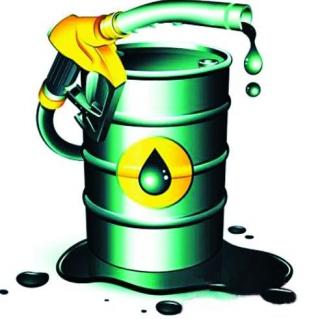
介绍:
China cuts retail gas prices again
China's top economic planner has announced a cut in the retail price of gasoline by 300 yuan per tonne and that of diesel by 290 yuan.
The adjustment, that will enter into effect on Saturday, means that the benchmark retail prices will drop by 0.22 yuan per liter for gas and 0.25 yuan per liter for diesel.
This is the sixth consecutive cut in oil prices and the largest single drop. Since the beginning of July, benchmark retail gas prices have declined by 0.79 yuan.
It is also the 10th time that retail oil prices have been cut this year. The last cut came on Sept. 29.
A pricing regime that entered into effect last year adjusts domestic fuel prices, when international crude prices change by more than 50 yuan per tonne for 10 working days.
Apple unveils IPad Air 2 with Touch ID to secure Apple Pay
Apple has unveiled its latest tablets, the IPad Air 2 and IPad mini 3, along with two new desk-top models.
Only 6.1 millimeters thick, the IPad Air 2 is the thinnest tablet in existence.
It's also equipped with Touch ID, Apple's newest security invention.
The new tablet also includes Apple Pay, the company's new payment tool.
The IPad Air 2 is priced between 36-hundred and 5-thousand yuan.
A number of market observers are suggesting the two new tablets, in particular the IPad mini 3, may not sell well.
Bryan Colello is a senior tech analyst with research firm Morningstar.
"First, the iPad I think customers are holding on to the ones that they already bought longer than anticipated. they see less of a need to buy the newest model, and then secondly, has been the rise of the large screen phones. Customers hold a 5 inch phone don't necessarily need or want to pay for a 7 inch tablet."
The two desktop Macs have 27-inch high-definition screens and a new operating system called OSx Yosemite.
The two desktops aren't cheap.
They're retailing at 25-hundred US dollars.
China confirms plan for setting disaster insurance system
Anchor:
China's Insurance Regulatory Commission has unveiled an insurance plan to cover natural disasters.
The insurance system is to be fully implemented in 2017.
CRI's Luo Bin has more details.
Report:
Frequent natural disasters such as earthquakes, typhoons and landslides in China have raised public concerns about the need for a disaster insurance system in the past few years.
China's Insurance Regulatory Commission has confirmed China's plan to build a sound insurance system to compensate the victims of natural disasters.
This plan, for the time, provides a framework for China's comprehensive natural disaster insurance system.
Wang Zuji, the Vice Chairman of the China Insurance Regulatory Commission, explains the plan in detail.
"First, we will promote the legislation required to setup the disaster insurance system. We are going to introduce this insurance as part of the post-disaster rescue mechanism to help the victims to get back on their feet quickly. We will also work on the setting of the insurance rates and regulations and conduct some subject researches on the co-insurance."
The framework came after the release of ten new insurance policies by the State Council, China's cabinet and has been seen as a step forward for China's disaster insurance system.
Natural disasters caused a loss of 69 billion yuan last year in China.
Wu Cheng, marketing director of China Co-op. in Hainan, says they've suffered great losses before.
"The impact of natural disasters are huge. We lost 20 million yuan this year because of typhoons. We wanted to buy insurance. Some of the farmer also wanted an insurance cover, but it was very expensive. The insurance companies were not willing to offer affordable policies. It was difficult for us to solve this problem."
The 2008 WenChuan earthquake caused a direct economic loss of over 800 billion yuan, but the insurance only paid back 0.2 percent of the total losses.
In western countries, the payment amount of commercial insurance is up to 30 to 40 percent of the direct loss.
For CRI, this is Luobin.
US Solar giant SunEdison to set-up US$2 Billion Polysilicon Plant in China
Missouri based Sun Edison, the best-performing U.S. solar company this year in terms of stock valuation, is in talks with a Chinese company about investing as much as 2 billion U.S. dollars to build a poly-silicon factory in China.
Sun Edison President Ahmad Chatila who is currently in Beijing for the negotiations says that the plant aims to have "the lowest manufacturing cost" for polysilicon in the industry.
The identity of the Chinese counterpart in this joint venture, one of the largest in the green-tech industry is still under wraps.
Once the plant is established, it plans to push down the cost of the manufacturing poly-silicon, the main raw material used in solar panels to less than 6 dollars a kilogram, about 2 dollars below the next lowest competitor.
The decision is the latest sign of recovery in the solar industry after a capacity glut depressed prices and margins for manufacturers worldwide.
Carmakers face output curbs in new rules
The Chinese government has rolled out a new series of measures to try to curb pollution stemming from vehicles.
The new rules will punish carmakers by banning them from producing new models and publicly naming them if they fail to meet fuel economy requirements on passenger vehicles set for next year.
The government will also reject expansion plans by offending companies, which be required to submit improvement plans.
The new rules are as strict as those being enforced in the US, Europe and Japan.
They will take effect on November 1st.
FAW-Volkswagen recalls cars in China
FAW-Volkswagen Automotive will recall tens of thousan
大家还在听

